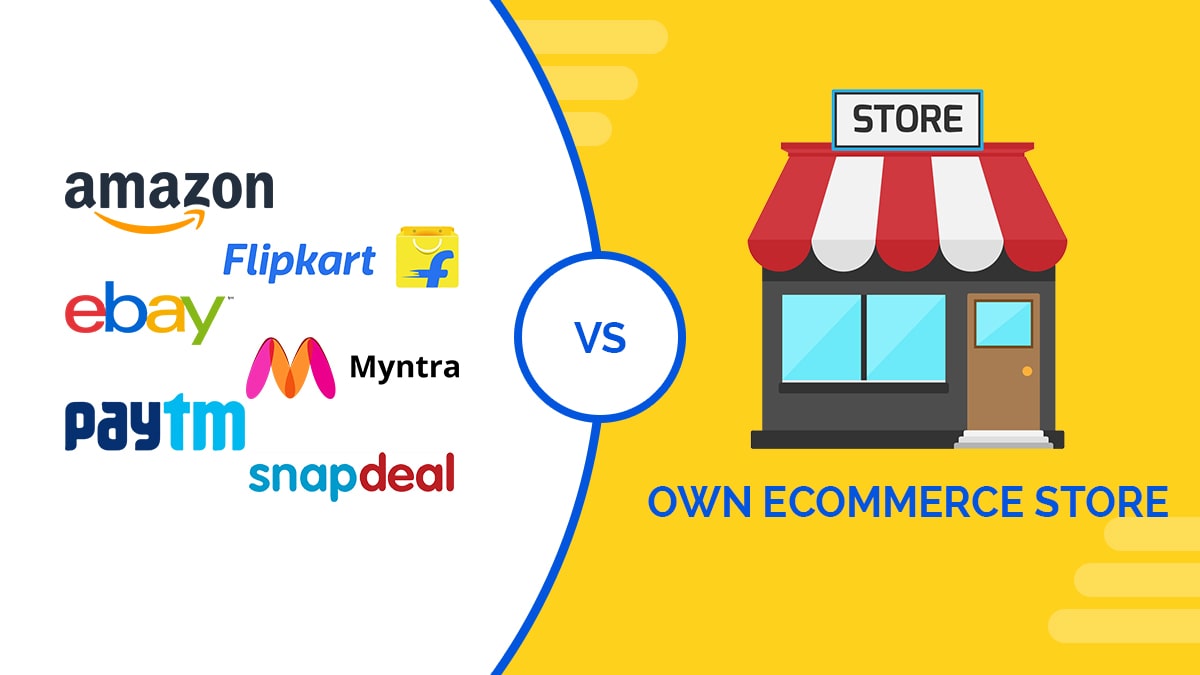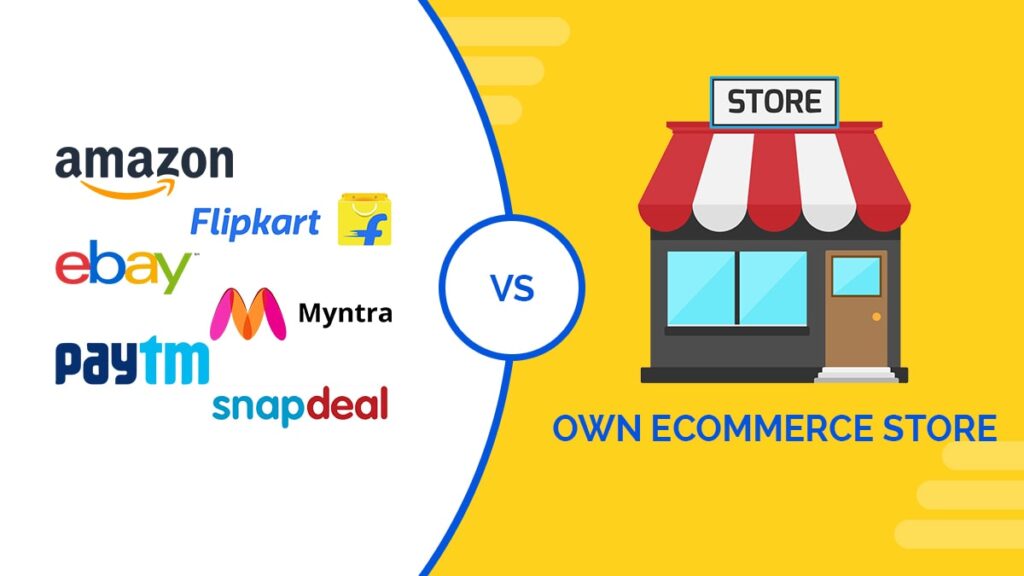![]()

Designing and manufacturing an awesome product is just one part of online commerce, a seller needs to make the product visible before the potential customers to make an effective sale. There are two platforms to launch your products- an e-commerce website and online marketplace. You can choose any one of these mediums to market your product however; there are some basic differences between the two.

The online marketplace is an attractive platform that includes several shoppers and retailers. Here a seller can directly reach a previously established customer base and sell the merchandizes with minimum efforts. On the other hand, an e-commerce website operates as a single brand online store and belongs to a particular brand or business.
Given below are five differences between Ecommerce and Marketplace which would help you decide on the best way to market your merchandizes.
Customer Target and Engagement
The main concern of a retailer is to target customers. An online marketplace has a steady base of customers and so registering and selling on this platform gets easy. Still, as several merchants are selling the same category of products, the competition is high and customers may end up choosing a rival’s product. Contrarily, an e-commerce site needs greater investment to increase its visibility. However, the good news is that once you can grab a particular customer base, then you don’t have to worry about competition. If a customer visits your site, then he will only go through your collection of products and so there is a greater degree of a guaranteed sale.
Customer engagement is an important step in online commerce. Marketplaces use different devices to engage customers and lead them towards desirable products. Their focus is to encourage buyers to purchase and sellers to sell. They create tools for effective networking where both buyers and sellers get attracted to one another. The e-commerce websites usually lack such tools as they are both expensive and time-consuming. Hence, customer engagement becomes less. Facebook ads offer one such facility to e-commerce websites where they can target and engage the relevant audience.
Expense
Selling a product on a marketplace is less expensive than on an eCommerce website. Here you can start with a small number of items and increase or decrease product number or variety as per your convenience. In an e-commerce website, you will have to steadily maintain a specific number of products and would be responsible to update or replace the products as per the market demands. You would have to constantly engage in 80/20 rule of Pareto Principle to sell your products to a wider people. Hence, you will have to continuously put in more efforts in both low and high seasons of sale. There would also be the issue of stocking the products and making space for unsaleable items. You will have to engage in regular sales and heavy discounts to get rid of all the unsold products while you would face no such issues on a marketplace.
Time and Effort
Selling on a marketplace is relatively easy and time-saving. All you have to do is register and list to start selling immediately. The e-commerce website requires much time and effort in setting up and maintaining the website. The seller also needs to engage in massive advertising to make his brand visible to the masses.
Profit
When it comes to profit, e-commerce website takes the cake. An e-commerce website can earn greater than the marketplace even with a low volume of sale because here the profit margin is greater. In an online marketplace, the parent site deducts a certain percentage of commission from every sale. Hence, here the vendors earn mostly by selling a larger volume of products.
Customer Loyalty
The biggest advantage of an e-commerce site is that it allows you to build customer loyalty. While the initial time, effort, and expense will be high, in the long run, there would be little struggle or competition to sell your products. Contrarily, on an online marketplace, you would just be an anonymous name and would struggle to be visible among the different competing brands.
Conclusion
Both e-commerce and the online marketplace have definite sets of advantages and disadvantages. The choice for a specific platform depends on the business size and requirement. If you are a small-time seller with limited products and budget and no plan for future expansion, you can choose an online marketplace to sell your merchandizes. However, if you are thinking of launching big, has sufficient funds, possess a vision to expand and you are ready to invest in the necessary time and effort, then e-commerce website is a natural choice. To get the best of both the worlds, many retailers engage in both ecommerce and marketing to sell their products.